Executive Committee – 2025-2026
The Executive Committee consists of eight U-M faculty representing different departments across three colleges and school. The committee supports the implementation of the mission of the Center for RNA Biomedicine.
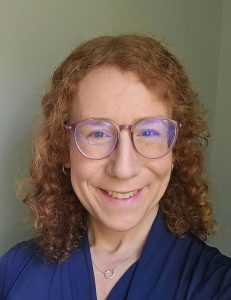
Professor
Biological Chemistry and
Computational Medicine and Bioinformatics
Medical School
lydsf@umich.edu
Lydia Freddolino, Ph.D.
The regulatory networks of bacteria play a key role in their information processing capabilities, coordinating and executing interactions with their environments. Quantitative, predictive models of these networks would be tremendously beneficial for facilitating the development of new antimicrobial therapies, enabling synthetic biology applications, and understanding bacterial evolution and ecology. Ultimately, the aim of my laboratory is to build a multiscale framework enabling modeling of bacterial regulatory networks at any level of detail, from atomistic to cellular. To this end, we develop and apply high-throughput experimental methods for measuring biomolecular interactions and cellular regulatory states in vivo, and for profiling the phenotypic consequences of regulatory changes. In tandem with these experimental approaches, we use molecular simulation and mathematical modeling to obtain high-resolution insight into the biomolecular interactions driving regulatory networks, and the systems-level effects of altering them.
More information and publication list are available on the Freddolino lab website.
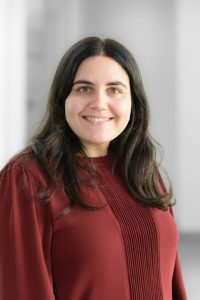
Sarah Kargbo-Hill, Ph.D.
Assistant Professor of Molecular, Cellular and Developmental Biology, College of Literature, Science, and the Arts
skarhill@umich.edu
Sarah Kargbo-Hill, Ph.D.
In the Kargbo-Hill lab, we are investigating how neurons regulate RNA metabolism and how defects in these processes contribute to age-related neurodegenerative diseases. Our research focuses on the RNA-binding protein, TDP-43, which is implicated in nearly all cases of Amyotrophic Lateral Sclerosis (ALS), and half of Frontotemporal Dementia (FTD). TDP-43 plays
critical roles in RNA metabolism including as a repressor of cryptic splicing events. Upon loss of TDP-43 hundreds of regions of introns, termed cryptic exons, become derepressed and spliced into the mature RNA, often resulting in instability and down-regulation of RNA and protein products. One focus of our group is to uncover how the hundreds of splicing events impact neuronal health, function and disease-associated pathways. To address these questions, we use techniques including human induced pluripotent stem cell (iPSC)-derived neurons, CRISPR interference (CRISPRi), and we employ a combination of forward genetic screens, proteomics, and RNA sequencing to delve into the complexities of neuronal gene regulation.
You can find more information at our website: https://sites.lsa.umich.edu/kargbohill-lab/
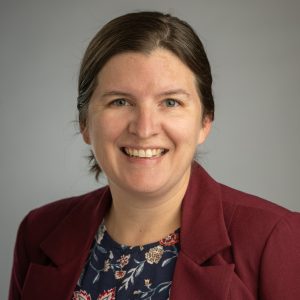
Rachel Niederer, Ph.D.
Assistant Professor of Biological Chemistry, Medical School • MM Biological Chemistry Dept., Faculty Scholar, Center for RNA Biomedicine
rachnied@umich.edu
Rachel Niederer, Ph.D.
Bio to come
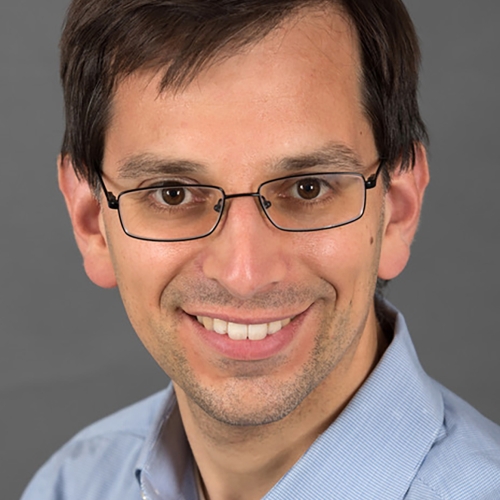
John Prensner, M.D., Ph.D.
Barry J Glick Early Career Professor of Pediatric Oncology, Assistant Professor of Pediatrics and Assistant Professor of Biological Chemistry, Medical School
prensner@umich.edu
John Prensner, M.D., Ph.D.
“The Prensner Lab focuses on understanding the molecular underpinnings of cancer by investigating RNA biology, including gene transcription and gene translation. The lab has developed high-throughput approaches to classify ribosome activity across cancer transcriptomes. In doing so, the Prensner Lab has made key observations on the translation of noncanonical open reading frames in cancer, looking about both their regulatory roles and their encoded microproteins. The biological and therapeutic implications for microproteins in cancer is a central interest for ongoing work in the group. In addition, the Prensner lab is interested in identifying small molecule and immune-based therapies that may target improper RNA translation in cancer.”

Research Assistant Professor, Life Sciences Institute and Assistant Professor of Biological Chemistry, Medical School, Faculty Scholar, Center for RNA Biomedicine
jquerido@umich.edu
Jay Brito Querido, Ph.D.
Messenger RNA (mRNA) translation into protein is fundamental for life. Translation occurs in four main steps: initiation, elongation, termination and ribosome recycling. Although cells have precise mechanisms to regulate each step of translation, initiation is by far the most tightly controlled step. My laboratory uses cryo-electron microscopy (cryoEM) together with biochemical and genetic approaches to investigate the mechanism of translation initiation and its implications in health and disease. In particular, we aim to understand how expanded nucleotide repeats contribute to neurodegeneration. A hexanucleotide GGGGCC repeat expansion within the first intron of the C9orf72 gene is the most common genetic cause of amyotrophic lateral sclerosis (ALS) and frontotemporal dementia (FTD). The expanded repeat undergoes a noncanonical mechanism of translation initiation known as repeat-associated non AUG (RAN) translation. RAN translation of C9orf72 mRNA generates toxic dipeptide repeat proteins, which accumulate in the brains of affected individuals and contribute to neurodegeneration in model systems. It remains unclear how RAN translation initiates, bypassing the requirement of a canonical start site. To address this question, we use cryoEM to determine the structure of RAN translation initiation complexes.

Chase Weidmann, Ph.D.
Assistant Professor of Biological Chemistry, Medical School, Faculty Scholar, Center for RNA Biomedicine
cweidman@umich.edu
Chase Weidmann, Ph.D.
In an average human cell, a large majority (> 80 %) of the genome is transcribed into RNA. A small fraction (< 5 %) of those transcripts are translated into proteins, while the remaining “noncoding” RNAs can assemble into a variety of RNA-protein complexes that govern transcription, splicing, translation, and other critical functions. Importantly, functions have been assigned to very few noncoding RNAs, and the fundamental principles of how noncoding RNAs work are still being elaborated. The Weidmann laboratory employs chemical probing and mutational profiling, essentially adding RNA-reactive chemicals to cells and using a sequencing readout to report on the structure and behavior of those RNAs. We couple these readouts with a variety of cell-based phenotypic assays to connect RNA structure and function in the study of disease (long noncoding RNAs driving lung cancer) and in fundamental biology (RNA modifications and RNA localization). We are also adapting chemical probing technologies for the development of RNA-targeting therapeutics. The ultimate goal is to understand principles of noncoding RNA assemblies that we might target them to manipulate biological outcomes.
Lab Website -> https://rnalab.med.umich.edu/
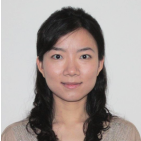
Assistant Professor
Biological Chemistry
yzhangbc@umich.edu
Yan Zhang, Ph.D.
CRISPR-Cas is a RNA-guided, genetic interference pathway in prokaryotes that enables acquired immunity against invasive nucleic acids. Nowadays, CRISPRs also provide formidable tools for facile, programmable genome engineering in eukaryotes. Cas9 proteins are the “effector” endonucleases for CRISPR interference; and have recently begun to be also recognized as important players in other aspects of bacterial physiology (e.g., acquisition of new spacers into CRISPRs, endogenous gene regulation, microbial pathogenesis). The Yan Zhang laboratory is broadly interested in CRISPR biology and mechanism. We use Neisseria species as our model system, and E. coli and human cells as additional platforms. We employ complementary biochemical, microbiological, genetic and genomic approaches. We are also interested in working with the broader scientific community to develop and apply novel CRISPR-based tools to tackle diverse biological questions.
Executive Committee Alumni
Sundeep Kalantry, Ph.D.
Professor of Human Genetics
kalantry@umich.edu
Sara Aton, Ph.D.
Associate Professor, Molecular, Cellular, and Developmental Biology
College of LSA saton@umich.edu
Markos Koutmos, Ph.D.
Assistant Professor, Chemistry and Biophysics
mkoutmos@umich.edu
Jayakrishnan Nandakumar, Ph.D.
Associate Professor of Molecular, Cellular and Developmental Biology
jknanda@umich.edu
Stephen C.J. Parker, Ph.D.
Associate Professor, Computational Medicine and Bioinformatics and Associate Professor of Human Genetics
scjp@umich.edu
Laura Scott, Ph.D.
Research Professor
Biostatistics
School of Public Health
ljst@umich.edu
